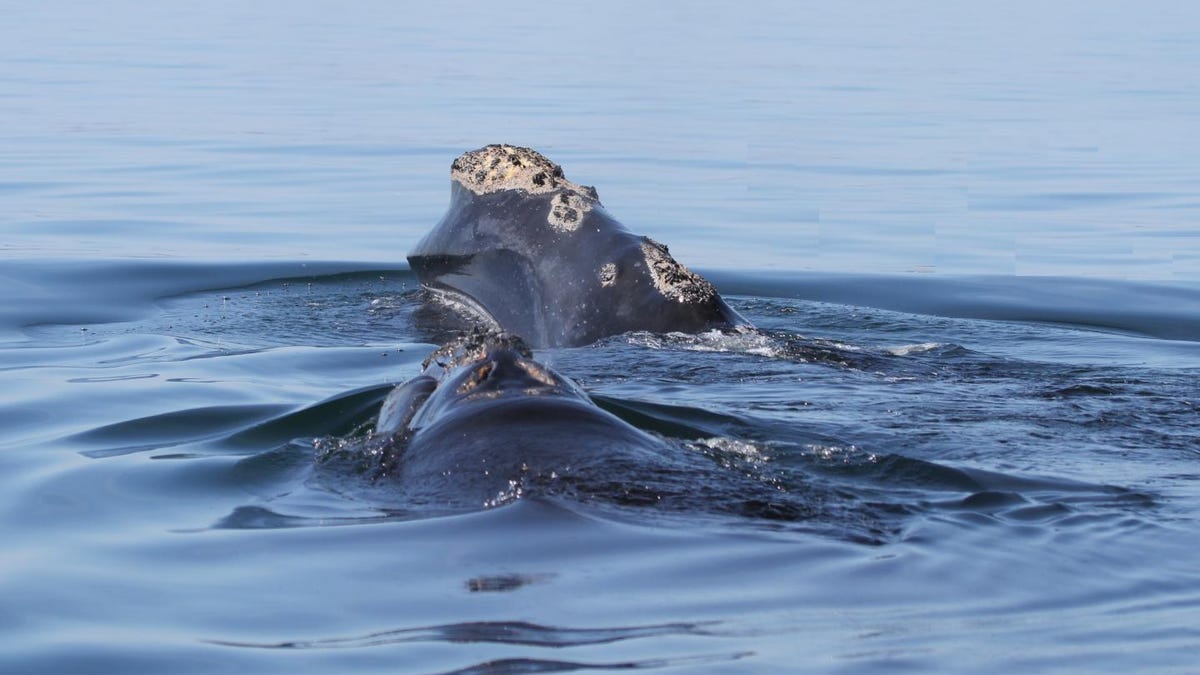Right whale moms 'whisper' to their babies so sharks won't hear
Scientists listen in on the underwater baby talk of the critically endangered whales.
North Atlantic right whales are big. They can weigh up to 70 tons. Adult whales don't have to worry much about natural predators, but their babies are another matter. Orcas and sharks are a danger to the youngsters.
A study of communication patterns between mother right whales and their calves suggests the moms lower their voices to speak to their kids so as not to attract attention from predators. A team led by researchers at Syracuse University published its findings in the journal Biology Letters on Wednesday.
North Atlantic right whales hang out in murky waters, so sound is the most likely way for predators to find the calves. Adult right whales loudly communicate with each other over long distances, but moms appear to be using a form of baby talk.
The researchers attached recording tags to mother whales using suction cups and discovered the mamas "produced a very soft, short, gruntlike sound" that couldn't be heard from more than a short distance away.
"These sounds can be thought of almost like a human whisper," said Syracuse University biologist Susan Parks in a release on Wednesday. "They allow the mother and calf to stay in touch with each other without advertising their presence to potential predators in the area."
The National Oceanic and Atmospheric Administration estimates there are only 400 North Atlantic right whales remaining, making them critically endangered. The animals are under threat from entanglement in fishing lines and collisions with vessels.
"There are still so many things we don't know about their behavior, and it is my hope that studies like these will help to improve efforts for their conservation," said Parks.


